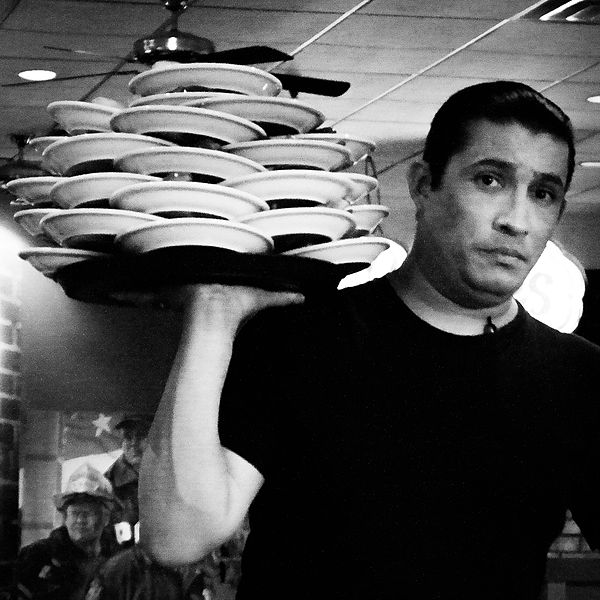I am a resident and a tipped worker here in the nation’s capital, and I support Initiative 77. And I am not alone. On June 19, the majority of voters in Washington, D.C. sent a powerful message to the city council when they approved a bill that would enact “one fair wage”—a full minimum wage—for nearly 30,000 tipped industry workers in this city. Currently, tipped workers—who include restaurant servers, nail salon technicians and parking valets—only earn $3.89 an hour, in comparison to workers in other industries, who earn the full minimum wage of $13.25.
But the city council is more concerned about preserving relationships with big business than respecting the will of the voters. Just two weeks after the election, councilmembers, in coordination with the National Restaurant Association, introduced legislation that would repeal the initiative and keep wages for some of D.C.’s most vulnerable workers below a livable wage. A hearing on the bill to repeal Initiative 77 was held on Sept. 17. No vote was scheduled.
The National Restaurant Association is a powerful pro-business lobbying group that fights against raising the minimum wage for restaurant workers across the country. The group is responsible for the recent “Save Our Tips” campaign that claims workers will lose tips if restaurant owners are forced to raise prices. But this is little more than a thinly veiled scare tactic. We know from cities across the country that have passed one fair wage legislation that raising the tipped minimum wage does not reduce rates of tipping.
One fair wage is a social justice issue. Tipped workers in D.C. experience poverty at nearly twice the rate of all workers in the city, and the majority of them are people of color and women—like myself—who can barely earn enough in tips alone to survive.
Despite the fact that employers in D.C. are supposed to compensate workers for a full minimum wage when tips do not make up the difference, wage theft is still a huge problem that plagues the industry. Just last week, we saw more instances of wage theft from one of D.C.’s largest restaurant groups—Farmers Restaurant Group—which was ordered to repay almost $1.5 million in sick leave to underpaid tipped workers. The burden to pay a legal wage should fall onto the employer, not me, the worker. There have been countless times that I’ve had to approach my employer due to wage discrepancies only after diligently combing through my paystubs, line by line, and keeping meticulous records of the hours I have worked.
Let’s get the facts: In the seven states (California, Washington, Nevada, Oregon, Arkansas, Minnesota and Montana) that have already enacted one fair wage for tipped worker, rates of tipping have remained the same, or in some cases—such as in San Francisco—risen. These states also report higher restaurant sales per capita and higher job growth in the restaurant industry. Restaurants are doing better, and workers earn more money.
But in addition to the economic and social factors that make one fair wage compelling for a city like D.C., we must remember that the voters have already spoken. It is the job of our city council to uphold the will of us, the people. I was appalled by the blatant dismissal of the democratic process when they quietly introduced a bill to fully repeal Initiative 77, avoiding the glare of cameras and push back from constituents. Seven wards voted in support of Initiative 77 by double-digit margins, with the greatest support stemming from the most economically marginalized sections, including Wards 7 and 8.
We must refuse this attempt to actively suppress the voice of the people, and we must demand that our elected leaders respect democratic values and not cave to special interest groups.








